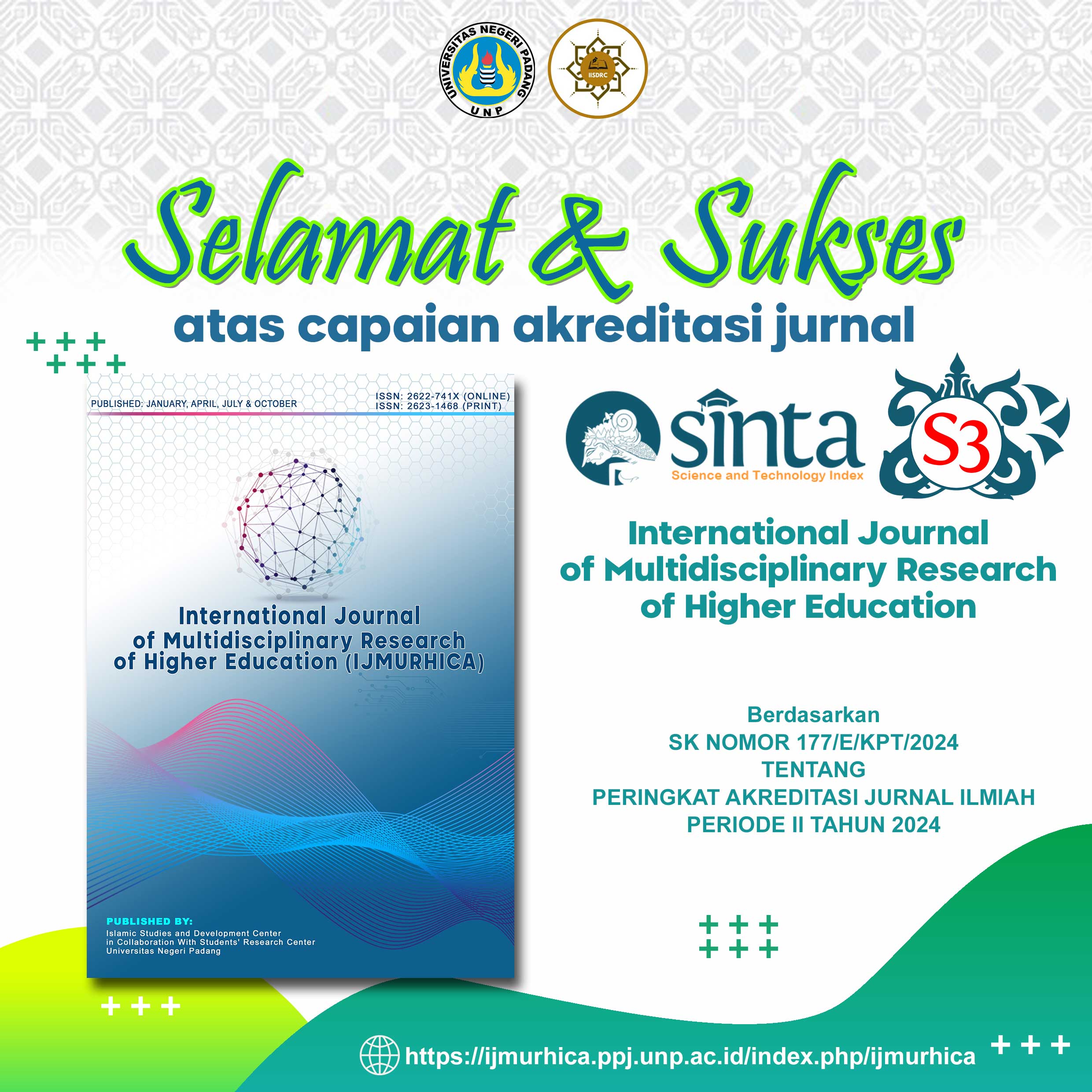Curriculum Implementation in School of Inclusive Education
DOI:
https://doi.org/10.24036/ijmurhica.v4i1.153Keywords:
Application of curriculum, inclusive, educationAbstract
In implementing the curriculum there are several stages, namely the planning, implementation and assessment stages. The curriculum used by inclusive education providers is modified according to the needs of the child. This paper aims to look at the implementation of the curriculum in schools providing inclusive education in the aspects of planning, implementing and evaluating learning as well as the factors that support and hinder the implementation of inclusive education. The research method used a qualitative approach with a descriptive method which was carried out at the Minangkabau Nature School and Junior High Schools in Padang. Data analysis techniques were carried out through observation, interviews and documentation studies. The results of this study indicate that; i) the first school has aligned the curriculum with assessments, individual learning programs and discussions with parents, teachers and principals while the second school has not aligned the curriculum, ii) the first school made adjustments to the implementation of learning in the material and evaluation of learning outcomes while the second school made adjustments to the material provided by the special accompanying teacher and the learning evaluation was assessed by the special supervising teacher, iii) learning evaluation is carried out by adjusting the level of difficulty of the questions, the number of questions, and the method of answering the questions using the students' abilities, vi) the support of school principals, colleagues and parents of students is felt while the inhibiting factors are that there are policies that are not yet comprehensive and that funds are inadequate. The results of this study can be used as initial data for future researchers in studying various issues related to this problem as well as various other information relevant to this context.






